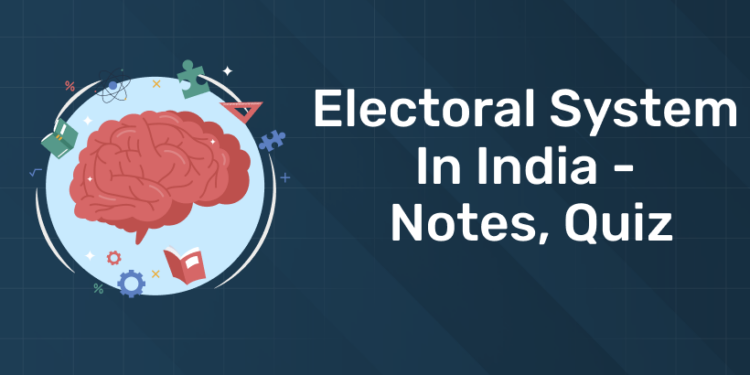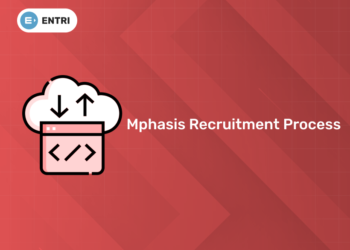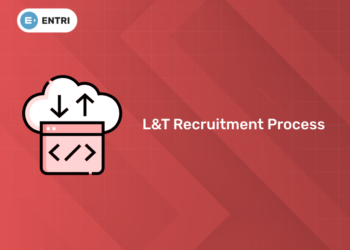Table of Contents
Introduction
In this blog, you will learn about Electoral System in India. India has over 1.2 billion people. It is the world’s largest democracy. This means the biggest elections are held here. Let’s see how it works.
Electoral System in India: An Overview
1: Who was the first woman President of India?
The Indian Constitution outlines the electoral system. Articles 324 to 329 cover this. These articles guide how elections are conducted. They ensure elections are free and fair. The Election Commission oversees this process.
Article 324: Independent Election Commission
Article 324 establishes the Election Commission. It ensures elections are fair. It oversees elections to:
- Parliament
- State legislatures
- President’s office
- Vice President’s office
Currently, the Election Commission has three members. They are the Chief Election Commissioner and two Election Commissioners. Elections to the Lok Sabha and state assemblies use adult franchise. Every Indian citizen aged 18 or older can vote.
Election Commission of India (ECI)
Article 324 creates the Election Commission of India. It has three members. One is the Chief Election Commissioner. The other two are Election Commissioners. The President of India appoints them.
Supreme Court Verdict on ECI Appointments
A five-judge Supreme Court bench ruled on ECI appointments. The President appoints ECI members. This is done on a committee’s advice. The committee includes:
- Prime Minister
- Leader of the Opposition in Lok Sabha
- Chief Justice of India
Chief Electoral Officer (CEO)
The Chief Electoral Officer (CEO) supervises state elections. They work under the Election Commission. The Election Commission nominates or designates a CEO. This is done in consultation with the state government. The CEO ensures elections run smoothly.
District Election Officer (DEO)
The District Election Officer (DEO) manages district elections. They work under the CEO. The Election Commission nominates or designates a DEO. This is done in consultation with the state government. The DEO oversees election activities in their district.
Returning Officer (RO)
The Returning Officer (RO) manages elections in a constituency. The Election Commission nominates or designates an RO. This is done in consultation with the state government. The RO ensures elections run smoothly in their area. They manage parliamentary and assembly constituencies.
Electoral Registration Officer (ERO)
The Electoral Registration Officer (ERO) prepares electoral rolls. They ensure eligible voters are listed. The ERO manages rolls for parliamentary and assembly constituencies. They update the rolls regularly. This ensures all eligible voters can vote.
Presiding Officer
The Presiding Officer manages polling stations. They are assisted by polling officers. The District Election Officer appoints them. In Union Territories, the Returning Officer makes these appointments. They ensure smooth polling at their station.
Free UPSKILLING Courses!
Take your first step toward mastering in-demand skills, acing interviews, and securing top-tier jobs with Entri's free upskilling courses.
Start Learning!Electoral System in India
Understanding the Process
India’s election system is complex. It manages the world’s largest democracy. Elections select representatives for the people. People can reject unsatisfactory representatives. Let’s see how this process works.
Regular Intervals and Rejection of Representatives
Elections are held regularly. This ensures representatives are accountable. People can reject poor-performing representatives. This keeps the system democratic. It allows for changes in leadership.
General Elections and Assembly Elections
General elections elect national representatives. They choose members of Parliament. Assembly elections elect state representatives. They choose members of state legislatures. Both are essential for governance.
Constituencies
India is divided into 543 constituencies for general elections. Each constituency elects one representative. For assembly elections, states have smaller constituencies. Each elects one representative. This ensures local representation.
Reserved Constituencies
Some constituencies are reserved for weaker sections. This includes Scheduled Castes, Scheduled Tribes, and women. Only these groups can contest in reserved constituencies. This ensures their representation. It makes elections more democratic.
Electoral Roll
The electoral roll lists all eligible voters. Only those on the roll can vote. It is regularly updated. This ensures all eligible people can vote. It maintains the roll’s accuracy.
Notification for Elections
The Election Commission issues election notifications. This starts the election process. It informs the public about upcoming elections. This includes dates and procedures. It is an important step.
Nominating Candidates
Candidates are nominated after the notification. Political parties nominate their candidates. Independent candidates can also contest. They must fill out a nomination form. They also pay a security deposit.
Campaigning
Candidates campaign to gain support. They interact with voters. They hold rallies and meetings. This helps voters learn about candidates. It is a crucial part of elections.
Election Day
Election Day is when voting happens. Voters cast their votes. Earlier, ballot papers were used. Now, electronic voting machines (EVMs) are used. This makes voting easier and faster.
Counting Votes
Votes are counted after polling ends. EVMs are opened, and votes are tallied. The candidate with the most votes wins. This is done simultaneously for all constituencies. The party with the most winners forms the government.
Key Points (RE-CAP)
- Elections are held regularly to select representatives.
- People can reject poor-performing representatives.
- General elections elect national representatives.
- Assembly elections elect state representatives.
- By-elections fill vacancies between general elections.
- Constituencies are territorial divisions of voters.
- Reserved constituencies ensure representation for weaker sections.
- The electoral roll lists eligible voters.
- Candidates fill out nomination forms and pay a deposit.
- Candidates must declare assets, qualifications, and pending criminal cases.
- Campaigning helps candidates gain support.
- The Model Code of Conduct regulates campaign activities.
- Violating the Code of Conduct can disqualify a candidate.
- EVMs are used for voting.
- Votes are counted to determine winners.
Electoral System in India – Quiz PDF
Electoral System in India Quiz PDF for free!
ELECTORAL SYSTEM IN INDIA – QUIZ PDF
Free UPSKILLING Courses!
Take your first step toward mastering in-demand skills, acing interviews, and securing top-tier jobs with Entri's free upskilling courses.
Start Learning!Electoral System in India – Quiz
1. What articles of the Indian Constitution outline the electoral system?
- A) Articles 300 to 310
- B) Articles 320 to 329
- C) Articles 324 to 329
- D) Articles 330 to 339
2. Who appoints the Chief Election Commissioner?
- A) Prime Minister
- B) President of India
- C) Chief Justice of India
- D) Leader of the Opposition
3. What age must an Indian citizen be to vote?
- A) 16 years
- B) 18 years
- C) 21 years
- D) 25 years
4. Which body supervises state elections?
- A) Chief Election Commissioner
- B) District Election Officer
- C) Chief Electoral Officer
- D) Returning Officer
5. What is the main function of the Returning Officer?
- A) Prepare electoral rolls
- B) Conduct elections in a constituency
- C) Supervise state elections
- D) Appoint polling officers
6. What is the electoral roll?
- A) List of candidates
- B) List of voters
- C) List of constituencies
- D) List of polling stations
7. What happens on Election Day?
- A) Campaigning begins
- B) Votes are counted
- C) Voting takes place
- D) Candidates are nominated
8. Who issues the notification for elections?
- A) Chief Electoral Officer
- B) Election Commission of India
- C) District Election Officer
- D) Returning Officer
9. What does the Model Code of Conduct regulate?
- A) Voting process
- B) Candidate nominations
- C) Election campaigns
- D) Vote counting
10. How are votes counted in India?
-
- A) Manually
- B) Using ballot papers
- C) Using electronic voting machines (EVMs)
- D) Through postal ballots
Answers:
- C) Articles 324 to 329
- B) President of India
- B) 18 years
- C) Chief Electoral Officer
- B) Conduct elections in a constituency
- B) List of voters
- C) Voting takes place
- B) Election Commission of India
- C) Election campaigns
- C) Using electronic voting machines (EVMs)
Conclusion:
Understanding the electoral system is crucial for a functioning democracy. The various officials play key roles in ensuring fair elections. Their duties ensure the smooth conduct of the electoral process. By knowing their roles, voters can better engage in democratic practices. A well-managed election process upholds democratic values and public trust.
Free UPSKILLING Courses!
Take your first step toward mastering in-demand skills, acing interviews, and securing top-tier jobs with Entri's free upskilling courses.
Start Learning!Frequently Asked Questions
What is the role of the Election Commission of India (ECI)?
The ECI manages and oversees elections across India. It ensures elections are free and fair. The ECI prepares electoral rolls and conducts elections. It enforces election laws and regulations. The ECI also handles election disputes.
How are voters registered in India?
Voters register through the Electoral Registration Officer (ERO) in their area. They must provide proof of identity and address. Registration can be done online or in person. The ERO updates the electoral rolls regularly. New voters can also register before elections.
What is the process for electing a Member of Parliament (MP) in India?
MPs are elected through direct voting in constituencies. General Elections are held every five years. Each constituency elects one MP to the Lok Sabha. Voters cast their votes on election day. The candidate with the most votes wins.
What are the responsibilities of a Presiding Officer at a polling station?
The Presiding Officer manages the polling station on election day. They ensure the voting process runs smoothly. They maintain order and assist voters as needed. They oversee vote counting at the station. They report results and any issues to higher authorities.
How are disputes or complaints about elections handled?
The Election Commission of India handles election disputes and complaints. It investigates issues related to election processes. The ECI resolves complaints about violations of election laws. It ensures compliance with electoral regulations. Decisions are made to maintain electoral integrity.












